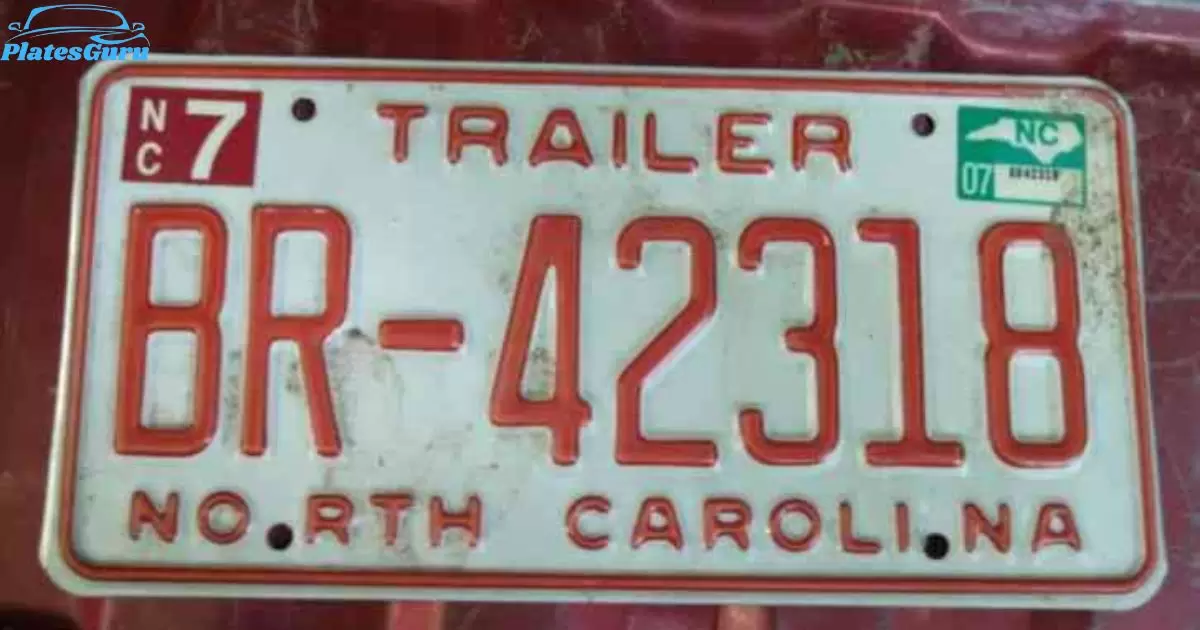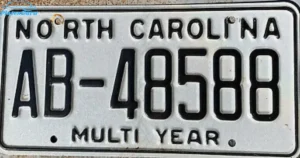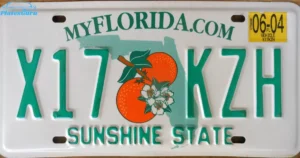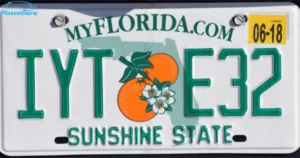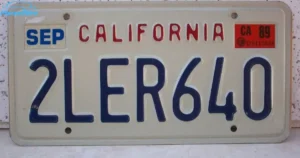In North Carolina, any trailer that exceeds 4,000 pounds is required to have a license plate, and it also needs to be equipped with lights. This regulation is part of the state’s efforts to ensure road safety and compliance. Trailers without lights and license plates can lead to violations and tickets. The specific requirements for trailers, including the need for lights and license plates, are designed to improve visibility and safety for all road users.
Understanding North Carolina’s Trailer License Plate Requirements
In North Carolina, the rules surrounding the registration and licensing of trailers are designed with safety and accountability in mind. Whether you’re a commercial hauler or a weekend warrior towing your boat or camper, understanding the legal requirements for trailer use is crucial. This introduction sets the stage for a deeper exploration into the specifics of trailer registration in the state, including which sizes and types of trailers are mandated to bear a license plate, such as the requirement for my trailer needing a license plate.
Why Registration Matters
The requirement for trailers to have a license plate in North Carolina isn’t just about generating revenue for the state; it’s a matter of public safety and road use regulation. Registered trailers are more easily tracked for ownership, which is vital in cases of theft or abandonment. Additionally, the process ensures that trailers meet safety standards that protect all road users. As we delve into the details, remember that compliance isn’t just legal adherence it’s a contribution to a safer, more responsible driving environment.
Size Matters: The Threshold for Licensing
North Carolina law stipulates specific criteria for trailer registration, with size being a primary determinant. Understanding the threshold for licensing is essential for trailer owners to ensure they are not inadvertently breaking the law. This section will clarify the size and weight limits that trigger the need for a license plate, along with any exceptions to the rule. It’s critical information for anyone looking to purchase or utilize a trailer within the state’s borders.
Step-by-Step Guide to Legal Trailer Use
Once the requirements for trailer registration are clear, the next step is understanding how to navigate the registration process. This involves more than just filling out paperwork; it requires understanding the documents needed, the fees involved, and where to go to complete the process. This guide will provide a straightforward, step-by-step breakdown to ensure that your trailer meets all legal standards for road use in North Carolina.
Defining Trailer Registration in NC
In North Carolina (NC) context, trailer registration refers to the official process by which trailer owners must document their trailers with the state’s Division of Motor Vehicles (DMV). This process is crucial for ensuring that all trailers used on public roads are legally recognized, meet specific safety standards, and are linked to an owner for accountability and identification purposes.
The Role of License Plates on Trailers
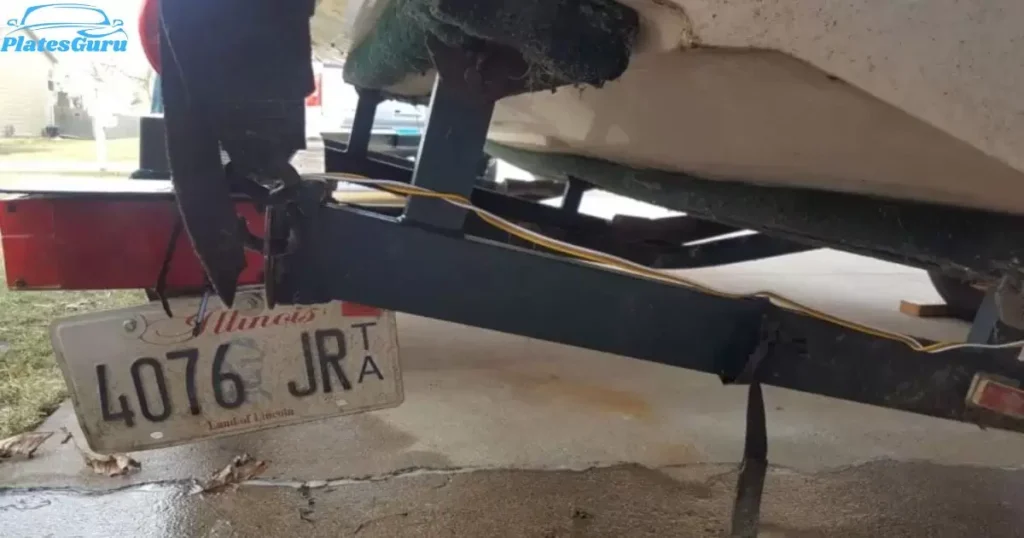
License plates serve as a visible proof of registration, allowing law enforcement and other authorities to quickly verify that a trailer is legally allowed on the road. In NC, the requirement for a trailer to have a license plate is not arbitrary but based on specific criteria, primarily focusing on the trailer’s size and weight. The presence of a license plate also facilitates the identification of the trailer’s owner, should the trailer be involved in a traffic violation, accident, or if it’s found abandoned.
How Size and Weight Determine Licensing Needs
In North Carolina, the size and weight of a trailer are the primary factors that determine whether it needs to be registered and, subsequently, requires a license plate. This section is dedicated to explaining the thresholds set by NC law, including the gross vehicle weight (GVW) that necessitates registration. Understanding these criteria is essential for trailer owners to ensure compliance with state regulations and avoid potential legal issues.
Understanding Exceptions to the Rule
While the general rule is that trailers of a certain size and weight must be registered and bear a license plate, there are exceptions and special cases within NC regulations. These may include trailers used for specific purposes, such as agricultural operations, or those that fall below a certain weight threshold. This segment aims to clarify these exceptions, providing trailer owners with the knowledge to determine exactly when and if their trailer must be registered.
Navigating North Carolina’s Trailer Registration Requirements
In North Carolina, the journey to legally towing your trailer starts with understanding the specific requirements set forth by the state’s Division of Motor Vehicles (DMV). These regulations ensure that all trailers on the road are fit for use and properly accounted for. The necessity for a license plate hinges on various factors, primarily the trailer’s gross vehicle weight (GVW) and its intended use.
Step-by-Step Registration Process
The first step towards compliance is determining whether your trailer meets the size and weight criteria necessitating registration. In North Carolina, trailers with a GVW of over 4,000 pounds require a license plate. However, the process doesn’t stop at recognizing the need for registration; it extends into how you can successfully navigate the DMV’s registration process:
- Preparation and Documentation: Gather the necessary documents, including proof of ownership (title or manufacturer’s certificate of origin) and a valid identification.
- Safety Inspection: Depending on your trailer’s size and type, a safety inspection may be required to ensure it adheres to road safety standards.
- Visit the DMV: With your documents and inspection certification in hand, visiting your local DMV office is the next step. Here, you’ll complete the registration application and pay the required fees.
- Receive Your License Plate: Once your application is processed, you’ll receive a license plate and registration card, marking your trailer as legally compliant for road use in NC.
Cost Considerations for Trailer Owners
The cost of registering your trailer in North Carolina includes a one-time title fee and an annual registration fee, which varies based on the trailer’s type and intended use. These fees contribute to the state’s road maintenance and safety programs, making it a crucial aspect of trailer ownership.
Special Considerations and Exemptions
Certain types of trailers may be exempt from standard registration requirements based on their use, such as those used exclusively for agricultural purposes or those below a specific weight threshold. Understanding these exemptions is vital for owners to ensure they’re not unnecessarily registering a trailer or missing out on required compliance.
The Importance of Adhering to Regulations
Beyond the administrative aspect of registration, there’s a critical emphasis on safety. Registered trailers are subject to inspections and must meet safety standards that protect not just the trailer owner but all road users. Compliance with these regulations is a testament to responsible ownership and a commitment to public safety.
Navigating the intricacies of North Carolina’s trailer registration requirements is a testament to the state’s dedication to road safety and legal compliance. By understanding and adhering to these regulations, trailer owners contribute to a safer, more regulated road environment, ensuring that their ventures, whether for business or leisure, are secure and lawful.
Key Takeaways for Trailer Owners in NC
- Registration Necessity: Trailers exceeding a GVW of 4,000 pounds require registration and a license plate in North Carolina, reflecting the state’s commitment to road safety and accountability.
- The Registration Process: A clear, step-by-step process involving documentation, possible safety inspections, DMV applications, and fee payments is essential for securing a license plate.
- Understanding Fees and Renewals: Awareness of the costs associated with trailer registration and the importance of timely renewals helps owners avoid penalties and maintain continuous compliance.
- Safety and Legal Obligations: Compliance with registration requirements is not merely bureaucratic; it’s a measure that ensures all trailers meet safety standards, protecting all road users.
FAQs
What Size Is A N.C. License Plate?
A North Carolina (N.C.) license plate typically measures 6 inches by 12 inches, which is the standard size for most U.S. license plates.
Does My Trailer Need A License Plate In SC?
Yes, in South Carolina (SC), trailers must be registered and have a license plate if they are used on public roads.
Does My Trailer Need A License Plate In Tennessee?
Yes, trailers operating on public roads in Tennessee require registration and must display a license plate.
How To Get A Vin Number For A Homemade Trailer In North Carolina?
To get a VIN for a homemade trailer in North Carolina, you must have the trailer inspected by the NCDMV or a licensed inspector, who can then assign a VIN to your trailer.
Can I use my trailer in NC without registration if it’s below 4,000 pounds GVW?
Yes, trailers under 4,000 pounds GVW typically do not require registration, but owners should verify specific exemptions and requirements based on their trailer’s use and characteristics.
What if my trailer is used only for agricultural purposes?
Trailers used exclusively for agricultural purposes may have different requirements or exemptions. It’s crucial to consult with the NC DMV or refer to state regulations for accurate information.
How often do I need to renew my trailer’s registration in NC?
Trailer registration renewal in North Carolina is generally required annually. Owners should pay attention to renewal notices from the DMV to ensure continuous compliance.
Are there penalties for failing to register a required trailer?
Yes, operating an unregistered trailer that legally requires registration can result in fines, penalties, and potentially impoundment. Adhering to registration laws is essential for avoiding these consequences.
Conclusion
Navigating North Carolina’s trailer registration requirements is crucial for ensuring road safety and compliance. Trailers exceeding a GVW of 4,000 pounds must be registered and equipped with lights, reflecting the state’s commitment to safety and accountability. This process, involving documentation, inspections, and fee payments, is designed not only as a bureaucratic necessity but as a significant measure to uphold safety standards. By adhering to these regulations, trailer owners contribute to a safer, regulated road environment, ensuring their activities, whether business or leisure, are secure and lawful. Compliance with these rules protects all road users and underscores the importance of responsible trailer ownership.
